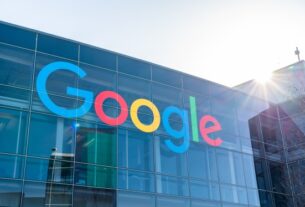
Looking Back at Apple’s Early Days as a Major PC Player Through Its Historic IPO
In our series exploring the initial public offerings (IPOs) of tech’s Big 5, we turn our attention to Apple. As the first of these companies to go public, what can we learn from Cupertino’s debut?
A Brief History of Apple Before Its IPO
When thinking about Apple today, images of iPhones, iPads, and iTunes come to mind. However, before its IPO in 1980, the company was a relatively unknown player in the technology industry. Founded by Steve Jobs, Steve Wozniak, and Ronald Wayne in 1976, Apple’s early success came from designing and selling personal computers.
Apple’s IPO: A Look Back
On December 12, 1980, Apple went public with an initial offering price of $22 per share. The company raised approximately $100 million, with the majority of the funds going to the firm itself (88%) and the remaining shares distributed among other shareholders.
The Value of Apple at Its IPO
At the time of its IPO, Apple’s market capitalization was estimated to be around $1.7 billion in 1980 dollars. This figure is significant when considering the company’s growth prospects and valuations today.
Who Owned What?
As part of its IPO, Apple had a relatively modest ownership structure, with Steve Jobs holding approximately 15% of the company’s shares. For context, this was significantly less than other tech companies that have gone public in recent years, such as Box, where CEO Aaron Levie owned less than 6% of the company.
Market Adoption and Profits
The history of Apple is well-documented, but one key takeaway from its IPO is the importance of market adoption. The companies that became the Big 5 (Amazon aside) tapped into enormous demand and quickly found profitable veins to tap into. This highlights the power of meeting consumer needs and desires in driving business growth.
Lessons from Apple’s IPO
Looking back on Apple’s IPO provides valuable lessons for startups and investors alike:
- Market adoption is crucial for success: Companies that meet consumer demands often find themselves at the forefront of their industries.
- Profitability matters: While losing money can be a viable strategy in certain circumstances, becoming profitable as quickly as possible is essential to long-term success.
- Ownership structure is important: The way companies distribute ownership and equity among founders, employees, and investors has significant implications for decision-making and growth.
Conclusion
Apple’s IPO serves as an excellent case study for startups and investors alike. By examining the company’s early growth prospects, ownership structure, and profitability, we can gain valuable insights into what drives success in the tech industry.
Related Topics
- A Look Back in IPO
- Apple
- Column
- IPO
- Startups
About the Author
Alex Wilhelm is a senior reporter for TechCrunch covering the markets, venture capital, and startups. He is also the founding host of TechCrunch’s Webby Award-winning podcast Equity.
Stay Up-to-Date with TechCrunch
Subscribe to TechCrunch Daily News to get the best of TechCrunch’s coverage every weekday and Sunday.






